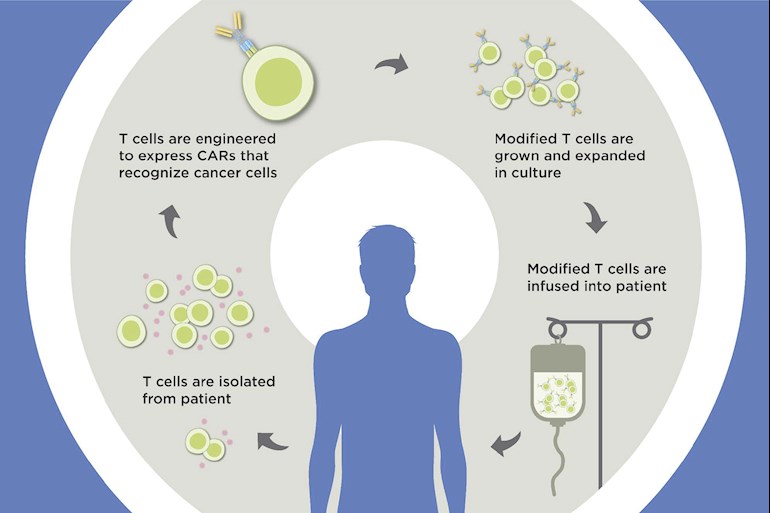Details about CAR-T procedure and side effects.
CAR (T cells and natural killer cells) constitutes a powerful new class of therapeutic agents to treat patients with hematologic malignancies. Several CAR T-cell trials have shown impressive remission rates in patients with relapsed/refractory hematologic cancers. Although the clinical responses of these agents in hematologic malignancies have been very encouraging, they have also produced substantial morbidity and occasionally mortality resulting from toxicity.
ascopubs.org/doi/full/10.12...
Jackie
